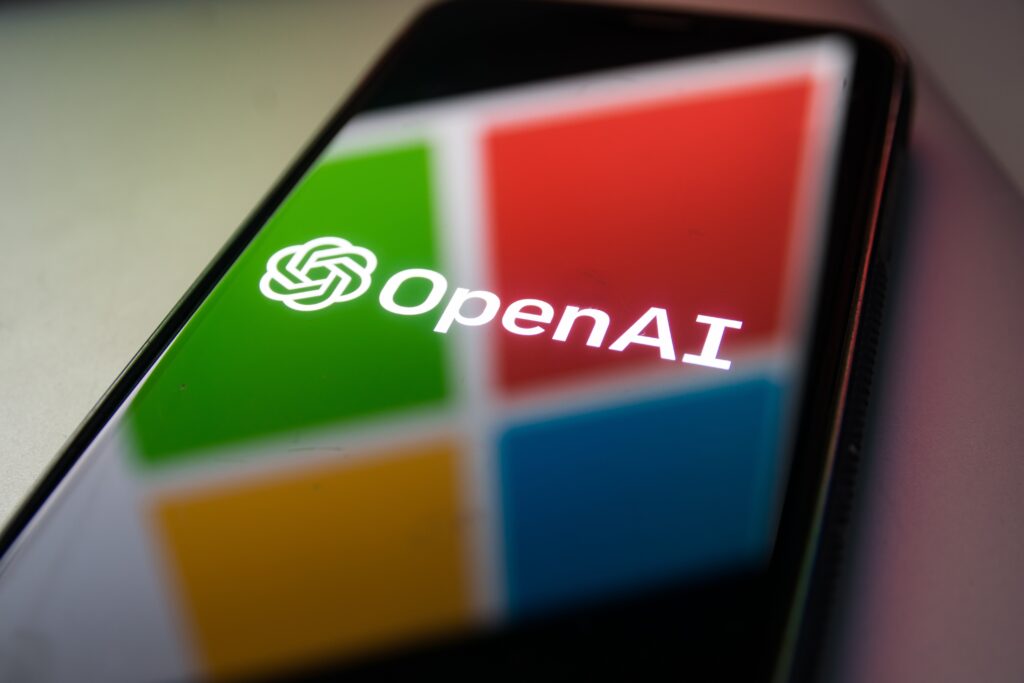
3 Steps to Successfully Automate Copilot for Microsoft 365 Implementation

Written in collaboration with Janine Morris Senior Solution Engineer, AvePoint
Microsoft Copilot for M365 is the generative AI that revolutionises organisations’ efficiencies by surfacing strategic insights, finding information, assisting with the curation of content, even summarising and planning your day as efficiently as clicking a button! What is missing from this equation is that deploying the technology isn’t as simple as flicking a switch and ‘going live” with Copilot for Microsoft 365. While the competitive advantage Copilot for Microsoft 365 offers is unparalleled, ensuring the protection of your organisation and its information assets requires more than activating the licenses.
This article examines the necessary preparation organisations should go through to prepare and mitigate potential pitfalls before integrating Copilot for Microsoft 365 into your organisation.
Despite the recent surge in interest in AI over the last 12 months, generative AI is a relatively young discipline as a technology that can engage with everyday users conversationally. Just a few years ago, AI was confined to academic research institutions, the subject of peer-reviewed papers and the research conference circuit. Organisations like OpenAI brought this technology to everyday users and now the workplace has realised the possibilities that context-based GenAI offers, igniting the interest in Copilot for Microsoft 365.

Source: Shutterstock
Copilot for Microsoft 365 allows users and workgroups to automate their day, collaborate more efficiently, be more productive and use collated data from across the organisation to make more informed decisions; all based on information reserves that are continually added to.
While there are benefits generative AI can bring, organisations must address significant concerns regarding security and data governance when embracing such technology.
Here we delve into three steps crucial for the successful implementation of generative AI:
Step One: Prepare the Environment and Consolidate Your Data
“Make Microsoft 365 the core of organisational information “
Making Microsoft 365 the core basis for business data, and therefore business intelligence is the most operationally logical choice for the majority of organisations. Most IT professionals understand that information becomes much more valuable when it is at users’ fingertips in the most-used platforms, rather than kept in isolated silos. Migrating data into M365 allows the smart algorithms of Copilot for Microsoft 365 to access relevant information, enabling the AI to enhance its understanding of how your organisation works based on the information available to it.
Fortunately, the AvePoint Confidence Platform helps organisations achieve this consolidation of content through migration, a process which goes beyond a straightforward lift-and-shift.
AvePoint Fly empowers organisations to move from on-premises or remote email to digital collaboration platforms like Google Workspaces, Box, Dropbox, Slack and other collaboration platforms to M365. It discovers and maps existing applications and content, creating migration schedules that minimise operational disruption and downtime. With multiple legacy tenants’ data in one place, businesses can start to better capitalise on their digital resources immediately.
Step Two: Identify and Organise
“Strengthen your data to enable strong Copilot for M365 results”
AvePoint’s Insights and Policies provides the framework to identify high risk content and build efficient and compliant workflows automatically to remediate any potential breaches. Reviewing and strengthening information security provides the ability to establish a solid foundation, encompassing robust cyber protections, identifying areas of sensitive and overshared content and classifying of information according to sensible privilege rules. This is a vital preparatory stage to protect your intellectual property (IP) and ensure your information remains secure and accessible to the right audience.
AvePoint Opus streamlines the classification and organisation of information within M365 (amongst other repositories), ensuring a standard approach to manage content that minimises user intervention. The aim is to ensure information remains accessible and supports compliance with relevant standards and legislation while being available to those who need it.
Simultaneously, organisations should reassess privilege hierarchies and security rules, considering the large investments in solutions like Teams, Groups, OneDrive, SharePoint, Power Automate and so on. Resolving and revising access accumulated access rights accrued over the years, helps bolster security and internal operational efficiency through simplification and consolidation.

Source: Shutterstock
Step Three: Continuous data management
“Ensuring relevant resources”
Tools such as Copilot for Microsoft 365 increase their value to the organisation over time, as they continually improve and refine their capabilities with the accumulation of information.
This is however contingent on the accuracy of your information. Keeping information that is no longer relevant and no longer serves a purpose can impact on the accuracy of machine learning’s findings. Information may represent older products or abandoned work practices that are no longer suitable for the organisation’s current environment.
It is however important to properly store and archive all data, both for compliance and as a source of contextual information for business intelligence with Copilot AI. Here, AvePoint Opus has you covered, keeping data accessible and secure.
Addressing ‘data hygiene’ regularly is imperative, yet many organisations have the resources to manage every aspect of their information assets. AvePoint automates content lifecycle management by automating the archival of inactive or ROT content and disposing of content that has exceeded its regulatory lifecycle. Furthermore, addressing data hygiene issues also offers a mechanism to reducing storage costs associated with M365.
As outlined in this article, the presence of shadow IT and siloed information can significantly impact the effectiveness of generative AI-driven content curation. Just having access to Copilot for M365 as part of a M365 license does not guarantee quality generate content. Without careful consideration of the organisations information structures, classification methods and content lifecycle management, the potential power of generative AI tools are unrealised.
For organisations committed to realising the maximum benefits of Copilot for M365, we recommend seeking specialised guidance to become “AI ready”. As an early adopter of machine learning technologies, AvePoint has assisted hundreds of organisations across various customer segments to unlock the full potential of generative AI.
With AvePoint’s expert guidance, you can navigate the Copilot for Microsoft 365 journey confidently, leveraging technology that is specifically designed to deliver optimal results.
To find out more about Copilot for M365 and how it and AvePoint can transform your organisation’s approach to data-based driven operations, contact AvePoint for a demo.
READ MORE
- Trustworthy AI – the Promise of Enterprise-Friendly Generative Machine Learning with Dell and NVIDIA
- Strategies for Democratizing GenAI
- The criticality of endpoint management in cybersecurity and operations
- Ethical AI: The renewed importance of safeguarding data and customer privacy in Generative AI applications
- How Japan balances AI-driven opportunities with cybersecurity needs
